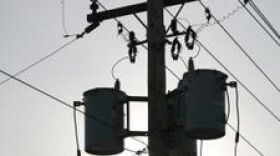Boulder has taken another step toward creation of its own electric utility. publisher Chris Wood discusses how the city will use data to make its decision.
Erin 翱鈥橳辞辞濒别: Chris, the Boulder City Council recently approved some metrics that it will use to determine whether to create its own municipal utility. What exactly are these metrics, and why are they so important?
Chris Wood: These metrics are essentially requirements that will have to be filled in order for the city to justify creation of a new utility, Erin. They include data that the city will collect to determine whether it鈥檚 feasible to buy the existing power grid from Xcel Energy. These won鈥檛 be the only criteria that the city will use, but the city can鈥檛 proceed if certain criteria aren鈥檛 met.
翱鈥橳辞辞濒别: It鈥檚 been a little while . Remind us why this issue of municipalization is coming up in the first place.
Wood: Well, this whole issue goes back several years, or even decades if you consider previous attempts to create a municipal-owned utility in Boulder. But the recent effort is aimed at increasing the city鈥檚 supply of renewable energy. That effort got a big boost a year ago, when voters authorized the city to create an electrical utility, as long as certain requirements were met.
翱鈥橳辞辞濒别: So what were those requirements - and how are they tied to the metrics that were approved by the city council?
Wood: Essentially, the requirements include that electricity rates don鈥檛 exceed Xcel鈥檚 at the time of launch, that a new utility be as reliable as Xcel, that the utility鈥檚 revenues be enough to cover expenses and debt payments, and that greenhouse-bas emissions be reduced. The metrics passed by city council are intended to establish the data that the city will use to determine whether those requirements could be met.
翱鈥橳辞辞濒别: Makes sense. I know municipalization has been controversial. What is the root of that controversy? Colorado has other municipal-owned utilities, right?
Wood: Yes, it does, including Colorado Springs, Longmont, Loveland, Fort Collins and Estes Park, among others. But those utilities were created many decades ago. Opponents of Boulder鈥檚 effort say that it would be too costly and would raise rates.
翱鈥橳辞辞濒别: Well, given that controversy, what has been the reaction to the metrics?
Wood: Well, this is Boulder, so controversy is a given, it seems. There was concern expressed by some in the business community that the metrics passed by the city council were designed to ensure that municipalization would occur.
But city officials say that鈥檚 not the case and that the metrics provide an objective way to evaluate municipalization. And the metrics did pass by a 7-to-1 vote on the city council. The council did approve language that the metrics are the minimum requirements - and do not set a predetermined course.
翱鈥橳辞辞濒别: So what鈥檚 the next step?
Wood: Next March, the city council will determine whether to proceed with municipalization or to choose an alternate strategy. One option is to to determine whether climate-change goals can be achieved through Xcel.
If the city proceeds with municipalization, we鈥檙e likely to see several years of lawsuits as the city seeks to condemn Xcel鈥檚 Boulder electrical system and as it commences filings with state and federal regulators.
翱鈥橳辞辞濒别: Something to watch. Chris, thank you.










